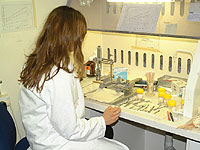 |
|
 |
| |
| |
| |
| |
| |
| |
| |
Campus: Kensington Campus
| |
| |
Career: Postgraduate
| |
| |
Units of Credit: 6
| |
| |
| |
| |
Contact Hours per Week: 0
| |
| |
| |
| |
| |
 |
|
 |
Description
All generic mining methods will be reviewed and analysed to identify the fundamental drivers which influence the performance of a mining operation based on each method. Mining operations are made up of a complex and inter-related number of key processes and systems. Appropriate and efficient mine design, planning and operations is dependent on understanding and optimising these processes and systems. Components of a generic mining operation to be considered will include: rock breakage, materials transport, grade/quality control and economic sensitivity, ground stability, mine environment and environmental impact. In each component, process and/or system, the critical economic sensitivities will be identified, together with the safety implications and management strategies.
|

